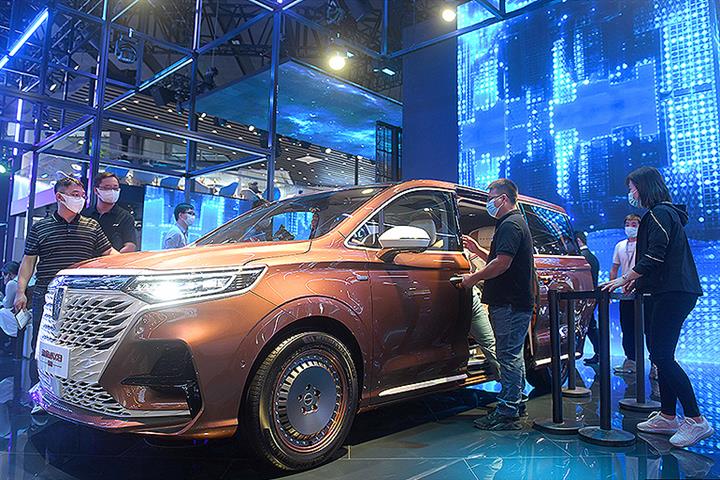 BMW, Audi, Volvo Launch New NEVs at Auto Guangzhou to Challenge Local Players
BMW, Audi, Volvo Launch New NEVs at Auto Guangzhou to Challenge Local Players(Yicai Global) Nov. 22 -- Playing catch up with Chinese startups, global luxury carmakers such as BMW and Volvo have unveiled new electric models at the Guangzhou Auto Show, as both expect the high-end segment to increase in size in coming years.
Some of the new releases in China include all-electric sport utility vehicles developed by Mercedes-Benz and Audi, Yicai Global learned. Stuttgart-headquartered Mercedes-Benz's models are EQA and EQB. Ingolstadt-based Audi's two new SUVs are Audi Q4 E-Tron and Q5 E-Tron.
Luxury vehicles in China have traditionally been those made by overseas companies but their electrification has been slower than that of Chinese carmakers. Meanwhile, local NEV startups such as Nio and Li Auto have been quick to add autopilot features to their vehicles, resulting in a competitive advantage.
"The impact of new foreign brand launches based on new electric vehicle platforms in China should not be underestimated," an industry analyst told Yicai Global. Most of the GIAE's foreign releases are based on new NEV development platforms.
The gap shows in sales. Last month, electric vehicles made up 18.8 percent of domestic car sales, according to the China Passenger Car Association. But in the luxury vehicle market, NEVs only accounted for 12 percent of all sales, it added.
Most foreign brands' electric models lack the smart driving and networking features that Chinese electric carmakers offer, said the analyst. This is a key reason for their poor performance in China, the person added.
Expo visitors have much to digest. SAIC General Motors, a joint venture between SAIC Motor and GM, debuted Cadillac Lyriq SUV in China during the event. The model, which carries a minimum price tag of CNY439,700 (USD68,892), has received more than 2,000 orders within two days.
The list continues with European firms. Munich-headquartered BMW revealed its BMW iX xDrive 50 during the event. Volvo brought its first pure electric crossover, C40 Recharge, to the expo.
The next car of many Chinese luxury vehicle buyers may be electric. The share of NEVs in the Chinese luxury vehicle market should rise to 40 percent by 2025, and exceed 70 percent by 2030, Jia Mingdi, general manager of SAIC Audi's marketing division, said to Yicai Global in an interview.
The Chinese arm of Audi has made its own prediction. "By 2030, over five million high-end vehicles will be sold in China each year, with those powered by new energy making up more than 40 percent of the total," Werner Eichhorn, president of Audi China, said in an interview with Yicai Global earlier.
Among the 1,000-plus vehicles on display at Auto Guangzhou, more than 240 are NEVs, up 70 percent from the previous expo. Almost 40 percent of the NEVs are made by multinational corporations.
Editors: Tang Shihua, Emmi Laine, Xiao Yi